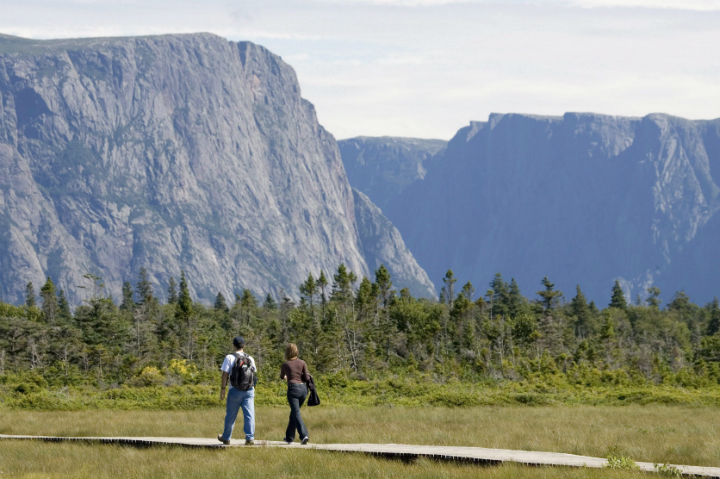ST. JOHN’S, N.L. – Newfoundland and Labrador is shutting the door on hydraulic fracturing applications while it reviews regulations and consults residents.

Natural Resources Minister Derrick Dalley announced the move Monday as the fall sitting of the legislature began.
“Our first consideration is the health and safety of our people,” he said in the house of assembly. “In making this decision, our government is acting responsibly and respecting the balance between economic development and environmental protection.”
Hydraulic fracturing, also known as fracking, involves pumping water, nitrogen, sand and chemical additives at high pressure to fracture shale rock formations and allow gas or oil to flow through well bores to the surface. It’s increasingly used across Canada and the U.S. as energy demands grow while conventional sources wane.
READ MORE: N.B. premier refuses to meet shale gas protesters in Fredericton
The province has not yet received formal applications to frack wells in western Newfoundland although exploration licences have been granted in what’s known as the Green Point shale near Gros Morne National Park.
The prospect of drilling in one of the province’s prime tourism destinations has set off intense debate. It has also raised concerns about groundwater pollution and other risks.

Get weekly money news
READ MORE: Albertan warns Newfoundland of fracking risk
Dalley said the government will take the time it needs to assess the geology of western Newfoundland, to give residents a chance to comment and to compare its own regulations to other jurisdictions.
It was a different dynamic as business at the house of assembly resumed for the fall sitting that’s expected to extend almost to Christmas.
The Opposition Liberals are up two members since the spring sitting, while the third-party New Democrats lost two members in a caucus rift that now sees those defectors sitting as Independents.
READ MORE: National chief offers support to Elsipogtog leaders in efforts to protect lands
There were also questions Monday for the ruling Progressive Conservatives about the $7.7-billion Muskrat Falls hydro project in Labrador. Construction on the joint project between Crown corporation Nalcor Energy and Nova Scotia utility company Emera has so far cost about $235 million, Dalley said.
Premier Kathy Dunderdale dismissed Liberal suggestions that the Muskrat Falls deal will unfairly benefit Nova Scotia ratepayers. Dunderdale reiterated her government’s often repeated line that Muskrat Falls is the best project over the long term for energy consumers. Any extra energy sold to Nova Scotia or elsewhere is an added benefit, she said.
Political scientist Stephen Tomblin of Memorial University of Newfoundland said the Tory government is in trouble if it can’t change perceptions that it is unaccountable and secretive.
“The government has to create a different impression,” Tomblin said. “The impression now is that they’re not accountable, they’re not open, they’re not transparent, that they’re gambling, and if they’re going to stay in power, they’re going to have to change the public’s views.”
The Tories hold 35 of 48 seats in the house of assembly. There are seven Liberals, three New Democrats and two Independents. A byelection has been called for Nov. 26 for one vacant seat following the resignation last month of former finance minister Jerome Kennedy.
The next provincial election is in October 2015.







Comments